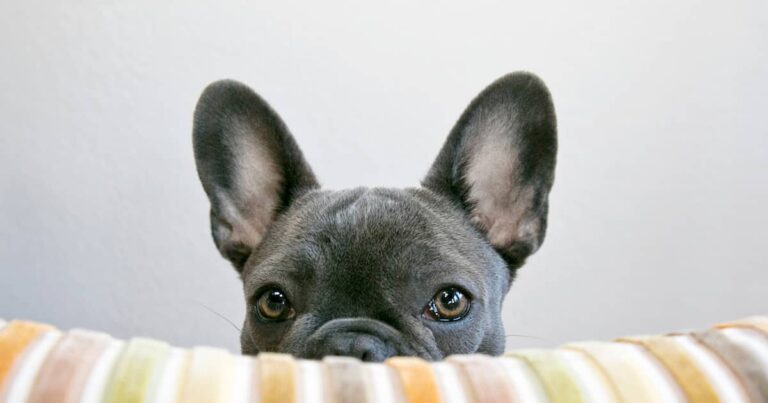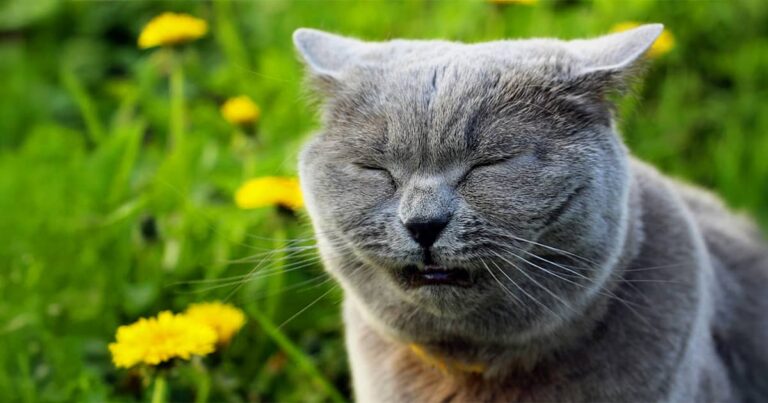We love to pamper our four-legged family members, and often that indulgence takes the form of food — too much food at mealtime, too many treats or too much “people food.” Showing our affection through table scraps typically isn’t good for our feline friends. In fact, we have five solid reasons why cats should not eat human food, especially leftover table scraps.
#1 Too many treats — of any kind — contribute to weight gain and the feline obesity epidemic.
An estimated 58 percent of U.S. cats are considered overweight or obese, according to the Association for Pet Obesity Prevention’s 2015 survey. Veterinarians attribute the expanding waistlines of U.S. cats to too much food, too little activity and too many treats.
It’s okay to give treats, but they should be a very small part of a kitty’s overall diet. Most treats aren’t formulated to be nutritionally “complete and balanced” like cat food; they’re made to be a super-tasty treat or between-meals snack. While some treats are designed to address a specific health concern such as dental health, hairballs or herpesvirus infection, most treats only add calories to kitty’s diet. That’s why many veterinarians recommend treats make up no more than 10 percent of a cat’s total daily calories.
Keep in mind, too, that cats don’t need nearly as many calories as people do to fuel their daily activities. For example, if you treat your 10-pound cat to a 1-ounce cube of cheddar cheese (about 115 calories), you’ve just met nearly half of their daily energy needs (aka calories) — but not nearly half of most of the nutrients that they need for the day. If you’re uncertain about how many calories your kitty should be eating, be sure to ask your veterinarian.

#2 Table scraps can cause tummy troubles.
Feeding calorie-rich table scraps, especially when a cat isn’t accustomed to getting that type of food, may upset their digestive system and lead to decreased appetite, vomiting or diarrhea. Basically, any time your kitty eats something that’s not part of it’s usual diet, the normal bacteria present in the intestines can change, which may lead to gas or diarrhea.
The way we cook our food — often with strong seasonings — can be irritating and potentially dangerous to our cats. Garlic and onions can damage your kitty’s red blood cells if they eat too much at a single sitting or if he or she consumes several small doses over a short period of time.
#3 People-food treats can create a finicky eater.
Feeding table scraps either as treats or as a supplement to a cat’s regular food may inadvertently encourage a kitty to become choosy about what he or she eats. (Many cats already have a reputation for being picky about their food. Let’s not foster their fussiness!) Your cat may start “holding out” for table treats, especially if they are not happy with their current food and they know they might be able to sample your dinner if they skip the kibble in their bowl.
#4 Slipping bites of human food to your kitty during meals can lead to undesirable behaviors such as begging, counter surfing and tabletop hopping.
Some cats quickly become accustomed to receiving tasty morsels from the table. But this practice can also encourage begging during meals and stealing food any time it’s left unattended. It could even lead to your kitty joining you and your guests on the table during meals. And while you might find it amusing, your human family and friends may be mortified — or at least lose their appetites. To avoid such behaviors, feed kitty his or her own healthy meal during your regular mealtime.
#5 Some people foods are harmful or even deadly to cats.
While people can eat a particular food without experiencing health issues, the same is not true for our cats. In addition to onions and garlic, chocolate, grapes and raisins are some of the common people foods that can have dangerous health consequences for our kitties. So before you feed any human food, be sure to consult your veterinarian first.
When you absolutely cannot say no
Ultimately, we do ourselves and our kitties a favor if we feed them a healthy, balanced diet that’s designed for cats. If you want to give a treat, you can try a spoon of canned cat food, a cat treat or a dental treat to help keep your cat’s teeth clean. Of course, since cats are obligate carnivores, a tidbit of cooked, lean meat (without seasonings) or fish are good options your cat will appreciate. Some cats also enjoy steamed and finely chopped broccoli and green beans. Finally, for many cats, a spoonful of canned pumpkin (without added pumpkin pie spices) is a welcomed delicacy that adds water and fiber to their diet.









